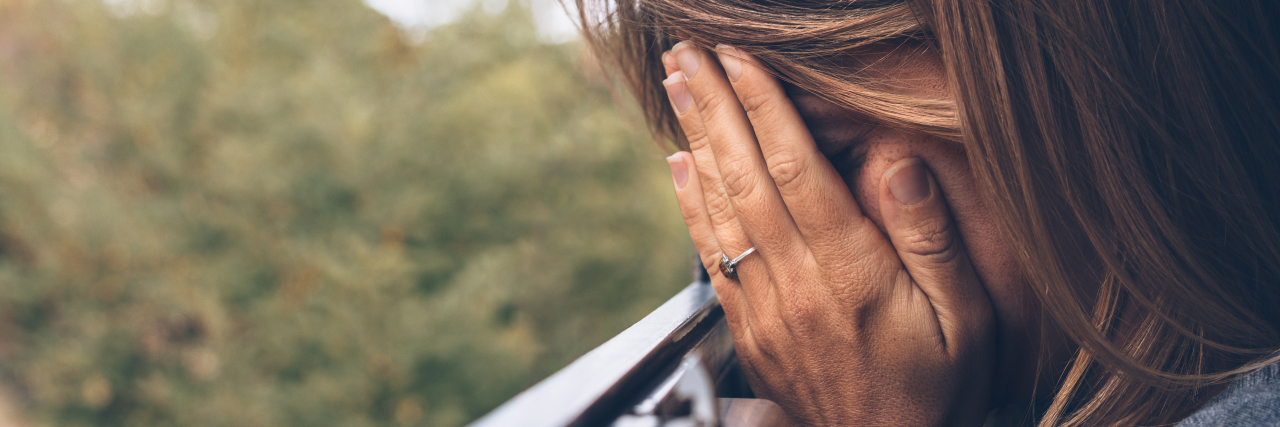A Letter to Las Vegas Shooting Survivors, From a Virginia Tech Shooting Survivor
Dear Survivors of the Las Vegas Shooting,
It’s been a month since October 1, 2017. I pray for you often. Each and every one of you. I want to reach out and hug you. I want to reach out and hug you when a stranger asks, “Were you there?” and you don’t know what to say. I want to reach out and hug you when you hear fireworks for the first time, and it feels like they will never end. I want to reach out and and hug you when you are hanging out with your friends, listening to country music, and you start having flashbacks to the concert.
When I reflect back on the first few months after the Virginia Tech shooting, I think about how naive I was to think I wasn’t affected. Immediately after the shooting, I attended candle light vigils, moments of silence, a memorial convocation and special church services. But after a few short weeks, all those events dissipated. Everyone around me appeared to return to a normal life without any issues, so I figured that’s what I needed to do. On the outside, I appeared to return to normal life as well, but on the inside, I was struggling.
I was having nightmares, the really horrific kind, but sharing them with no one. I didn’t know how to respond to questions about the shooting. I hated being in public, especially classrooms, gyms, movie theaters and churches. I became hyper-vigilant when I heard loud “popping” sounds and was suspicious of most strangers. I wish someone had told me these things were normal to experience after witnessing mass violence.
I am writing this letter to share with you some lessons I’ve learned during my recovery. Some of these things may help you, some may not. That’s OK. Each lesson I have learned is because of missteps I made after the VT shooting. I hope you can let in what feels right, as you think about how you’re doing a month after the Las Vegas shooting.
Feel the uncomfortable feelings. Oh, the feels. Survivor’s guilt, fear, anxiety, sadness, loneliness, helplessness, self-doubt. You may feel all of these or just some of these. Feel them. Explore them. They are telling you something. My misstep was that I pushed away these feelings because they were uncomfortable. However, pushing away feelings doesn’t work; you have to confront them head-on. (But do so gently.)
Find good listeners. Find people to talk to who listen. Talking to the right person (or group of people) can be extremely therapeutic. For me, my recovery made great strides when I began connecting with others who’d been through Virginia Tech, Columbine, Sandy Hook. They helped me feel less alone. They understood what it is like to be affected by an active shooter event, and because of this, we bonded. We connected on a level deeper than I did with some of my closest family and friends. It may surprise you who you find comfort in talking to and who you don’t.
Comparison is the thief of joy. Don’t confuse connection with comparison — it’s fine line. One misstep I made was comparing my experience to those who lost a loved one and those who were physically injured. I assumed their needs were greater than mine because their pain was greater than mine. Since then, I’ve learned that our experiences aren’t meant to be compared. Our needs are all equal because we are all equal. Experiences will vary. Needs will vary. That’s OK.
Put your self-care and recovery above all else. When I was 21, I didn’t have a clue what prioritizing self-care meant, and I thought recovery was for those who were shot. For those of you not physically injured at the Las Vegas shooting, you will likely have a recovery journey too. Everyone’s journeys look different, and recovery is usually not linear. For me, recovery didn’t start until eight years after the Virginia Tech shooting. In hindsight, I wish I didn’t take so long to begin recovery. Remember, wounds can be both physical and mental.
Don’t give up on counseling. I called it quits on counseling too early. I had never been to counseling before and wasn’t sure how it worked. You have to show up (both physically and mentally) and be honest. It took me three counselors until I finally found one who really helped me. You have to trust your counselor with your most vulnerable feelings. When the relationship with your counselor is right, you will most likely open up. Trusting your counselor is critical for counseling to be successful.
My hope is that by reflecting on my missteps, you will learn these lessons early in your recovery and suffer less. Part of me wants to wrap you up in bubble wrap and protect you from the media, the next shooting news coverage, and the lady at the grocery story who won’t stop asking you questions. The other part of me knows this won’t work because true recovery requires integrating yourselves back into the world at a pace you’re comfortable with, regaining a sense of safety when in public, while finding space to process your experiences and heal, without pushing everyone and everything away.
When you get to a place where you feel “recovered,” you will feel so much stronger for life’s next hurdle. And lastly, the next time someone asks you a question about the shooting, you watch fireworks, or you hear country music, think of me and know that aren’t alone.
With love from Virginia Tech,
Lisa
If you need support right now, call the National Suicide Prevention Lifeline at 1-800-273-8255, the Trevor Project at 1-866-488-7386 or reach the Crisis Text Line by texting “START” to 741-741.
Getty Image by Marjan_Apostolovic

